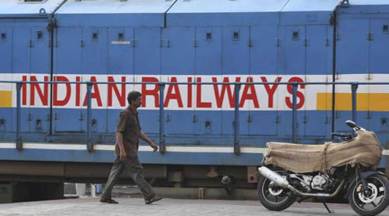Stay updated with the latest - Click here to follow us on Instagram
Nearly 49,000 bio-toilets in over 900 trains operational
The additional cost of providing bio-toilets in one coach (4 bio-toilets) is Rs 4 lakh approximately.

With the aim of enhancing the cleanliness and hygienic condition at rail premises and also preventing corrosion of tracks, railways aims to install bio-toilets in all passenger coaches by 2019 and has installed over 45,000 such toilets in coaches till October this year. “The project of installation of bio-toilets in all passenger coaches has not yet been completed. The project is still in progress,” said a senior Railway Ministry official. More than 49,000 bio-toilets have been installed in passenger coaches till October 31, 2016.
Watch What Else Is Making News
monthly limit of free stories.
with an Express account.
At present, there are more than 900 trains in which bio-toilets have been introduced either in all coaches or in some coaches of the trains.
“More and more trains are being progressively augmented with coaches fitted with bio-toilets,” he said adding “all new coached will be equipped with bio-toilets during the manufacturing.”
The additional cost of providing bio-toilets in one coach (4 bio-toilets) is Rs 4 lakh approximately and for the in-service coaches, which require replacement of structural members for fitment of bio-toilets, the additional cost is approximately Rs 16 lakh per coach, according to railways.
Anaerobic digestion process is applied for the digestion of human excreta in the bio-toilets that are being fitted in passenger coaches. No human excreta is thrown out on the railway track from a bio-toilet fitted in trains.
In these bio-toilets, which are fitted below the coach floor underneath the lavatories, the human waste is collected from toilet and is acted upon by a colony of anaerobic bacteria that convert human waste mainly into water and bio-gases (mainly Methane CH4 and Carbon Dioxide CO2). The gases escape into the atmosphere and wastewater is discharged after disinfection onto the track. Human excreta thus do not fall on the railway tracks.